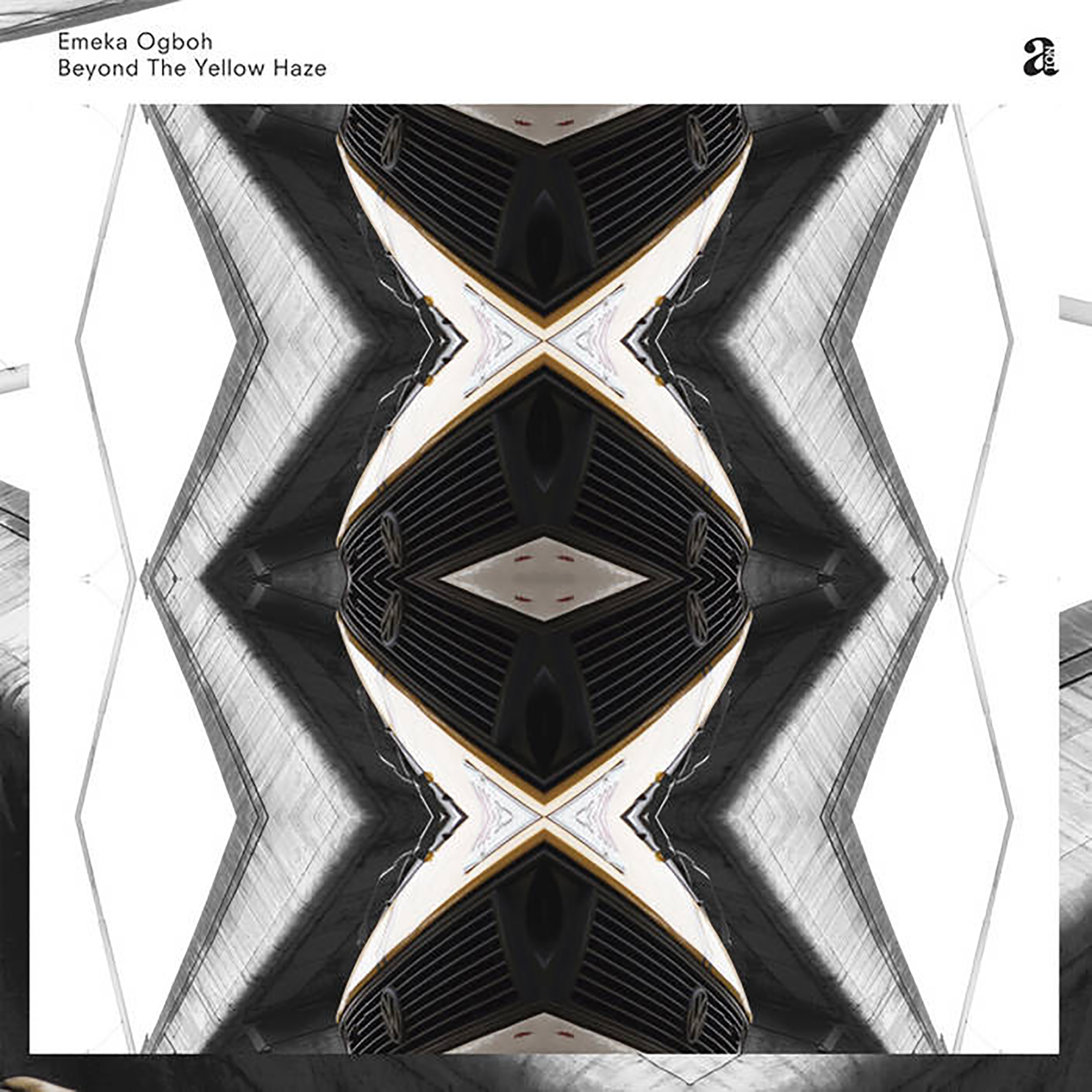 This bombshell release is the first album from Nigerian sound and installation artist Emeka Ogboh, but it sounds like the assured work of killer dub techno producer at the height of their powers. On its surface, Beyond The Yellow Haze admittedly (and probably unintentionally) shares a lot of common ground with prime Muslimgauze, as a central theme of Ogboh's art is his passion for capturing the ambient city sounds of Lagos. Consequently, these five pieces are nicely enhanced with layers of street noise, conversations, and passing snatches of melody, yet Beyond The Yellow Haze is primarily a great album because Ogboh is a goddamn wizard at crafting heavy, shape-shifting grooves with elegant dubwise percussion flourishes. I suppose the beats also creep into Muslimgauze territory at times, as Ogboh is similarly quite fond of slow and hypnotic grooves flavored with African and Arabic rhythms, yet the two artists differ dramatically when it comes to focus and exacting execution (among other things), as nearly every song here is a flawless diamond of immersively layered textures, slow-burning dynamic transformation, and crunching physicality. This is probably the strongest beat-driven album that I have heard all year, debut or otherwise.
This bombshell release is the first album from Nigerian sound and installation artist Emeka Ogboh, but it sounds like the assured work of killer dub techno producer at the height of their powers. On its surface, Beyond The Yellow Haze admittedly (and probably unintentionally) shares a lot of common ground with prime Muslimgauze, as a central theme of Ogboh's art is his passion for capturing the ambient city sounds of Lagos. Consequently, these five pieces are nicely enhanced with layers of street noise, conversations, and passing snatches of melody, yet Beyond The Yellow Haze is primarily a great album because Ogboh is a goddamn wizard at crafting heavy, shape-shifting grooves with elegant dubwise percussion flourishes. I suppose the beats also creep into Muslimgauze territory at times, as Ogboh is similarly quite fond of slow and hypnotic grooves flavored with African and Arabic rhythms, yet the two artists differ dramatically when it comes to focus and exacting execution (among other things), as nearly every song here is a flawless diamond of immersively layered textures, slow-burning dynamic transformation, and crunching physicality. This is probably the strongest beat-driven album that I have heard all year, debut or otherwise.
This is technically a reissue, as the album first surfaced as a limited vinyl release of 150 hand-numbered copies as part of Ogboh's 2018 exhibition at Galerie Imane Farès in Paris. I suspect very few people outside the visual art world noticed or heard that initial release, however, so it is a minor miracle that Berlin's influential Ostgut Ton picked up the baton to give Beyond The Yellow Haze a well-deserved second chance to make an impact three years later. It certainly made an impact on me within its first minute, as "Lekki Aiah Freeway" is a feast of deep dubby grooves, stuttering woodblock flourishes, and dreamlike rave pads. The ghostly synth bits quite beautiful and unexpected, but they are also basically just icing on an already perfect cake: I could listen to Ogboh build and dismantle a beat all goddamn day.
Unsurprisingly, an opening salvo that resembles a giant woodpecker stomping his way Godzilla-style through crowded Lagos streets on his way to the club is quite hard to top, yet Ogboh nevertheless manages to surpass that killer opener at least once with "Everydaywehustlin" (and arguably a second time with the more ambient-inspired "Palm Groove").  In a rough sense, "Everydaywehustlin" is quite similar to "Lekki Aiah Freeway," but with the beautiful synth pads mostly swapped out for layers of street noise and voices. As far as I am concerned, however, the salient point is that "Everydaywehustlin" is a monster groove for the ages, as it sounds like a great Muslimgauze album and a chopped & screwed Notorious B.I.G. tape crash landed in the middle of a busy Lagos street (and the woodpecker is back too). It is, quite simply, an endlessly shifting juggernaut of industrial-damaged heavy dub brilliance. The album's other beat-driven piece ("Danfo Mellow") does not quite hit as hard for me, as a gently burbling synth motif is entrusted with a bit too much heavy lifting, but it may be a good entry point for those looking for a bit melody in the balance. The album's final major piece, "Palm Grove," unexpectedly abandons drums entirely in favor of bleary, rainswept ambiance that evokes a sensual, hallucinatory, and neon-soaked tour of late-night Lagos streets experienced through the window of a slow-moving cab. Remarkably, even the extremely brief "Outro" that concludes album is kind of great, as Ogboh manages to turn 90 seconds of finger bells and distant street noise into an immersive and gently psychotropic reverie. To my ears, this album is at worst two or three instant classics in the span of just five songs, but it comes extremely damn close to being a wall-to-wall tour de force.
Samples can be found here.
Read More

